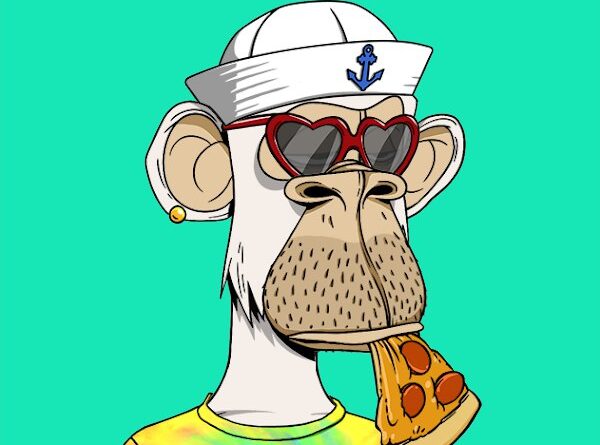NFTs: The Newest Way to Say You’re An Idiot
Unless you’ve been completely offline for the past year, you’ve probably heard about NFTs or non-fungible tokens. From Red Ape Family to Cryptoland, NFTs have become one of the biggest chronically online trends in the past few years. Despite how prolific NFTs have become, not many people actually know what they are. Essentially, it’s a sort of cryptocurrency that’s become popular with a lot of artists lately. As the name entails, NFTs are non-fungible, meaning they cannot be interchanged. With most other forms of crypto, you can easily exchange or change it to another. You can easily convert bitcoin to Terra for example, but with NFTs, that one file you purchase is unique, and even if there’s another NFT of the same image or video, it won’t be the same thing. Recently, a lot of people and companies are trying to capitalize on this new trend, to make a quick buck. The problem is that NFTs are really, really stupid.
With NFTs, you can capitalize on owning the original file to an image and being able to say you own the original. However, it’s nowhere near as impressive as owning the rights to an original painting, for example. Because NFTs exist solely on the internet, there’s nothing stopping someone from just screenshotting or right-clicking and saving your ugly monkey profile pic, and now you’ve just lost thousands of dollars. The thing is, once an NFT is replicated, it immediately loses its value since it’s not the original anymore, and owning the original file means nothing on the internet. As it turns out, nobody really cares if you own the original metadata. You do not own the physical art, because it’s purely digital—and any digital artist will tell you there are hordes of people who make money off of reposting other people’s artwork.
Ironically, there are tons of NFTs made from stolen artwork, and due to how most crypto-hosting sites operate, there isn’t a lot the artist can do if they don’t want their art to be stolen. It is not comparable to selling a physical cell from an old animation or an ancient painting, it’s essentially a receipt saying you paid for an art piece that isn’t original, isn’t custom made, is easily replicable, and loses all of its monetary value the second any mouth-breather on Instagram takes a screenshot. Your digital receipt has to be held in a private server, which’ll just go down eventually because that’s just how time and the internet works. You could spend thousands of hours mining bitcoin, and lose 42,000 dollars because a twelve-year-old on Twitter reposted it. Everything from CG movie assets, art pieces, to the entire web series are now only easier to pirate due to the inherent lack of security in NFTs as they currently stand.
If that were the end of it, this wouldn’t be any more relevant than your average Twitter flamewar. However, it’s not that simple. Despite the fact that crypto as a whole is mostly restricted to the internet, they often do actually have real-world consequences. That doesn’t mean you can buy things with your ether from anywhere besides Burger King, which nobody should ever eat anyway. The truth is NFTs are partially responsible for melting the ice caps. Greenhouse gases are generated by the cryptocurrencies used to buy the NFTs, most notably ethereum. According to a study done by Medium.com, cryptocurrency produces enough CO2 to rival the electrical usage of the average EU citizen over seventy-seven years. On average, a single standard edition NFT is roughly equivalent to driving a car for five hundred miles, to say nothing of the big ones. Some of these NFTs are comparable to the carbon footprint of small countries. The Weeknd’s NFT drop from December 2021 was comparable to over eighty transatlantic flights. That’s a lot of CO2 for the 4k remaster of Annoying Orange.
At its core, The NFT trend is emblematic of the ruling class’ desire to extend their grubby, filthy, sweaty stumps of inbred fingers into more and more of the internet. It’s not a coincidence that hundreds of multi-million dollar companies, famous celebrities, and wealthy elites are all now endorsing NFTs. Companies will publicly pay off celebrities and influencers to buy and endorse NFTs and condition people into the trend, killing the planet and kneecapping the art industry for the sake of fake profit with no practical application. Can’t wait for another crypto-crash.



